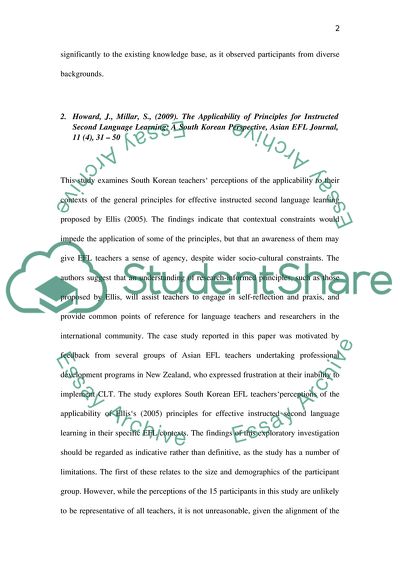Cite this document
(“Investigation of 10 case studies in the field of L2 writing Book Report/Review”, n.d.)
Investigation of 10 case studies in the field of L2 writing Book Report/Review. Retrieved from https://studentshare.org/miscellaneous/1561078-investigation-of-10-case-studies-in-the-field-of-l2-writing
Investigation of 10 case studies in the field of L2 writing Book Report/Review. Retrieved from https://studentshare.org/miscellaneous/1561078-investigation-of-10-case-studies-in-the-field-of-l2-writing
(Investigation of 10 Case Studies in the Field of L2 Writing Book Report/Review)
Investigation of 10 Case Studies in the Field of L2 Writing Book Report/Review. https://studentshare.org/miscellaneous/1561078-investigation-of-10-case-studies-in-the-field-of-l2-writing.
Investigation of 10 Case Studies in the Field of L2 Writing Book Report/Review. https://studentshare.org/miscellaneous/1561078-investigation-of-10-case-studies-in-the-field-of-l2-writing.
“Investigation of 10 Case Studies in the Field of L2 Writing Book Report/Review”, n.d. https://studentshare.org/miscellaneous/1561078-investigation-of-10-case-studies-in-the-field-of-l2-writing.


